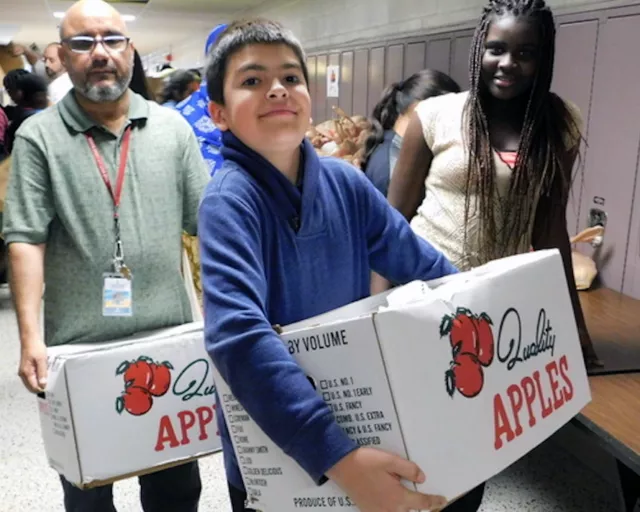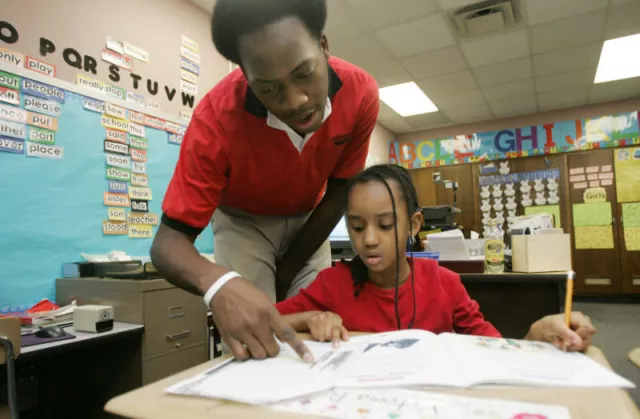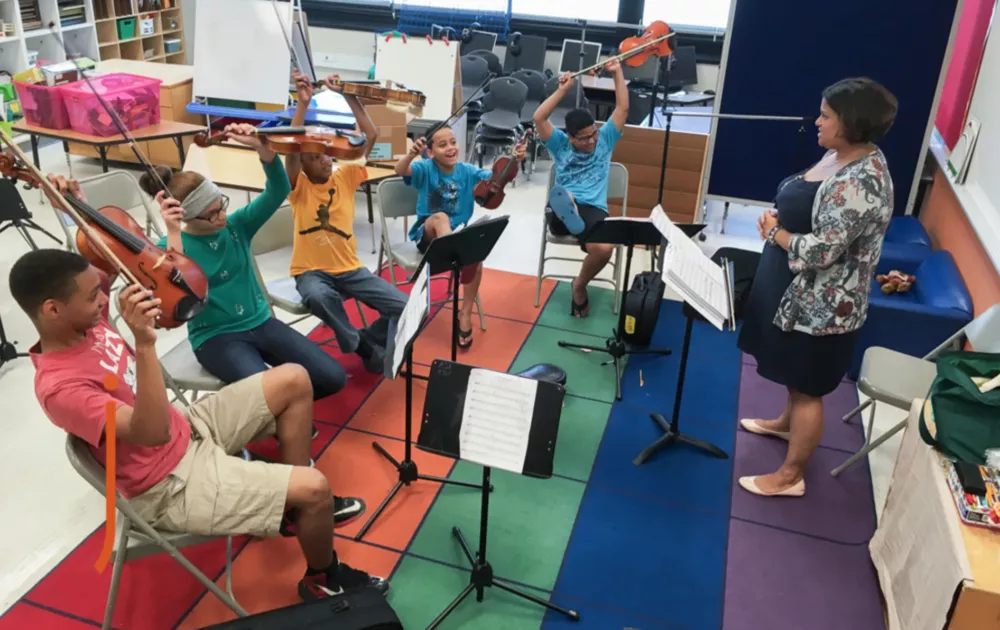Federal legislation can help expand the full-service public community school model, which features high-quality teaching and learning, family and community partnerships, community school coordinators, and a full suite of support services for students and families, such as health and nutrition services and mentoring programs.
Community schools fit each neighborhood’s unique needs—from offering food pantries to providing mental health counseling—and offer strategies designed to meet challenges identified by educators, students, families, local organizations, and social service agencies.
Dig Deeper

What are Community Schools?

New Federal Bill Promotes Public Schools as Community Hubs

How Community Schools Reduce Crushing Educator Workload
Ready, Set, Grow!

